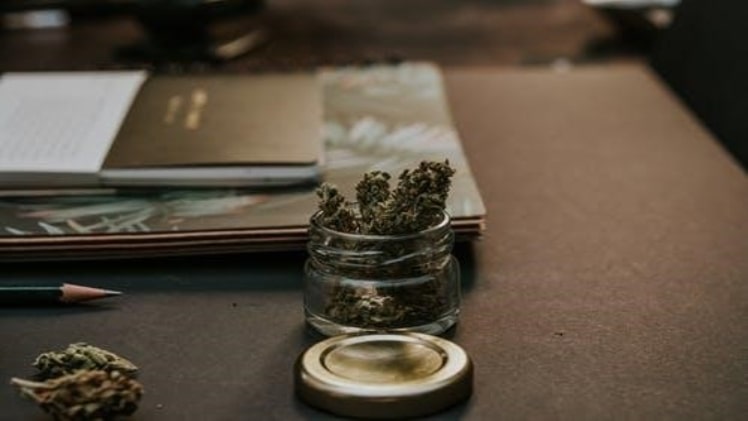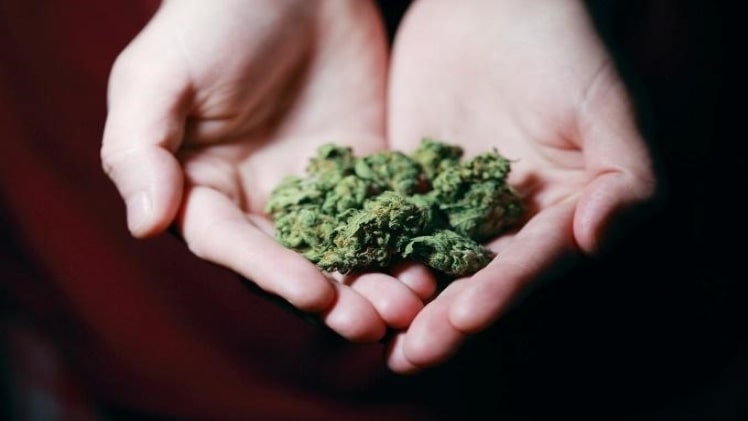Hexahydrocannabinol (HHC) is a heat and UV resistant version of THC. It also lasts much longer than THC. Unlike THC-O, HHC is found in nature. Like Delta 10, it occurs in trace amounts and must be manufactured in labs to be available to the public. In use, HHC provides more relaxation than stimulation. It works like THC, altering mood and cognition and causing euphoria.
What does HHC stand for?
Scientists have long known about a relative of THC called HHC. People who use cannabis haven’t talked about it much until now. HHC is a minor cannabinoid. It is found in small amounts in cannabis but not enough to make extraction cost-effective. People don’t know much about HHC because it’s still new.
When you change the chemistry of a cannabinoid, you can make another cannabinoid from it. HHC is made in the same way as delta 8 and delta 10 THC. It is made from hemp-derived CBD in a lab by chemical processes. Legally, HHC has an important advantage over Delta 8, Delta 10, and Delta 11: It doesn’t have THC.
Process for getting Hexahydrocannabinol
The HHC was discovered with the assistance of chemist Roger Adams. Moreover, he obtained it by incorporating hydrogen into the THC molecule, which caused the molecule’s physical properties to change. However, the term “hydrogenation” refers to the entire procedure, which was first used in the 1947 patent.
Difference between HHC and THC

A bondless compound does not have a bond in its chemical structure. HHC is usually the form of THC that can be called a “bondless compound.” This is also the exact opposite of the CBN, which is another type of cannabinol. This, too, is made when THC is broken down. It also has double-bonds. Mentions are some differences:
-
Take Various Forms
HHC is extracted to be used in products like edibles, vaping products, and tinctures. As a result, the HHC market will be very similar to the existing hemp industry in terms of product types. THC is also the same, which can be extracted and then used to create similar products.
-
Effects
So far, it’s very likely that HHC and THC act the same in the body, and maybe even almost the same. This is based on people’s opinions after they’ve used it. It’s mostly agreed that the type of high it gives you is about the same and that the other effects, like how it might affect pain, nausea, and appetite, are also about the same.
-
Sources
THC is a cannabinoid found only in the flowering buds of the cannabis plant, and it is responsible for its psychoactive effects. Meanwhile, the cannabinoid HHC is only found in the seeds and pollen of the cannabis plant. This is surprising because we were told in the past that the only source of cannabinoids was the plant’s flowers.
-
Availability in market
Hexahydrocannabinol is currently unavailable. When it was first made, it was only an isolated cannabinoid for a short time. Now, manufacturers are developing their extraction and formulation methods to make HHC available soon. You can’t find HHC in the market yet.
It’s also not available on the open market because it is illegal both at the federal and state levels, so it can’t be sold. This isn’t a big deal as long as you live in a state that allows delta 9. But, most people in the United States can’t legally buy or use either cannabinoid right now. That’s expected to change soon, though, as HHC is expected to become more common.
-
Side effects
It’s mostly based on stories about how HHC works and what it can do to people. Delta 9 THC users, on the other hand, report the same side effects as delta 9 THC users: paranoia and anxiety, dry and red eyes and mouth, hunger, and sleeplessness.

Conclusion
Both THC and HHC are similar and can be compared only based on their molecular structure.

